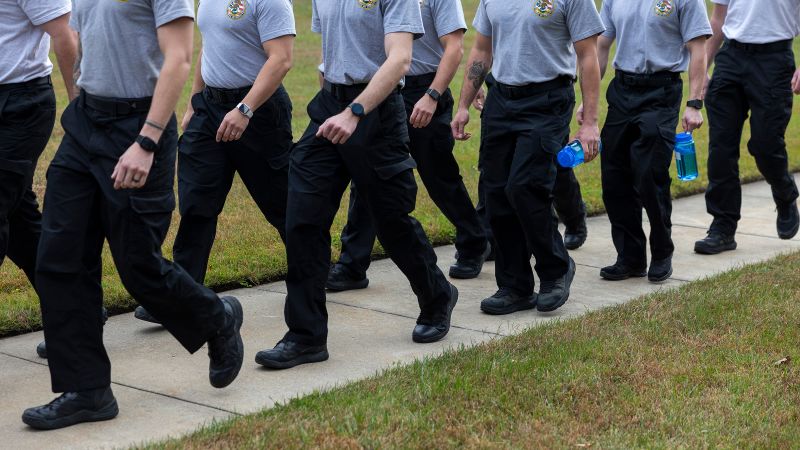The issue of air travel safety has become increasingly complex, especially with evolving immigration policies in the United States. As President Donald Trump undertook initiatives to deport a significant number of undocumented immigrants, the implications for aviation safety came to the forefront. His administration aimed to remove around one million immigrants a year, which has led to unprecedented government engagement in immigration enforcement operations that now include the involvement of Federal Air Marshals on deportation flights.
Historically, the Federal Air Marshal Service was established due to a surge in airplane hijackings in the 1960s, with a renewed focus on anti-terrorism after the 9/11 attacks. However, the reallocation of approximately 200 Air Marshals to serve on flights designed for the transfer of detainees in Immigration and Customs Enforcement (ICE) custody raised alarm bells. According to multiple sources, these Air Marshals are now performing duties that range from flight security to serving food, a task well below their trained capabilities.
Concerns have been particularly acute regarding national security. The Air Marshal National Council, which advocates for the interests of Air Marshals, expressed serious reservations about this diversion of resources. They have characterized the move as undermining the integrity of aviation safety by pulling skilled officers from their prime duty of protecting commercial flights against threats. In their cease-and-desist letter to the Department of Homeland Security (DHS) and the Transportation Security Administration (TSA), they emphasized that marshals working on deportation flights are often unarmed, further complicating the security landscape.
Particularly troubling is the financial aspect of this arrangement. The GEO Group, a private company tasked with providing security for deportation flights, has been critiqued for relying on federal agents to perform security tasks for which they are financially contracted. This situation raises questions about contract fraud and whether taxpayer-funded resources are being misappropriated to subsidize private enterprise profits. Critics posit that Air Marshals should not be working to fulfill operational duties that private companies are contracted for in the first place.
Statements from agency representatives suggest that the redeployments were part of broader immigration enforcement efforts but bring into question the prioritization of national security. A TSA spokesperson defended their actions by claiming that the redeployments have not compromised the safety and operational effectiveness of Federal Air Marshals on standard domestic and international flights.
Historically, deportation flights in the U.S. have been operational since the mid-20th century and have been conducted under both Democratic and Republican administrations. Nevertheless, flight operations under Trump’s leadership have dramatically intensified, reflecting a fundamental policy shift. Data suggests that deportation flights surged by 34% within one six-month period in 2024 compared to earlier years, driven in part by immigration raids and the need for internal transportation of detainees.
The nationwide mobilization of various federal agencies—from the U.S. Marshals Service to the FBI, and now the TSA—indicates the extensive efforts being employed to facilitate heightened immigration enforcement. As reported, Air Marshals purportedly received significant overtime pay for their involvement in these unusual operations, impacting not only their roles but also the overall safety framework of U.S. aviation.
What remains contentious is whether Air Marshals, traditionally tasked with preventing hijacking and ensuring passenger safety onboard commercial flights, should serve both in their original role while also fulfilling roles directed by immigration enforcement agencies. Notable figures, including representatives from the Air Marshal Association, have voiced support for the current deployments but recognize that critical focuses may be compromised during this transitional phase in airport and air travel security management.
As discussions progress in Washington regarding immigration policy and its enforcement mechanisms, the discourse around air travel safety will likely evolve further. The interaction between security responsibilities and immigration measures is bound to remain a hotly debated issue amid ongoing legislative scrutiny. Thus, the future of air travel safety, along with the role of federal marshals, remains contingent upon the outcome of broader policy decisions and national safety assessments.











